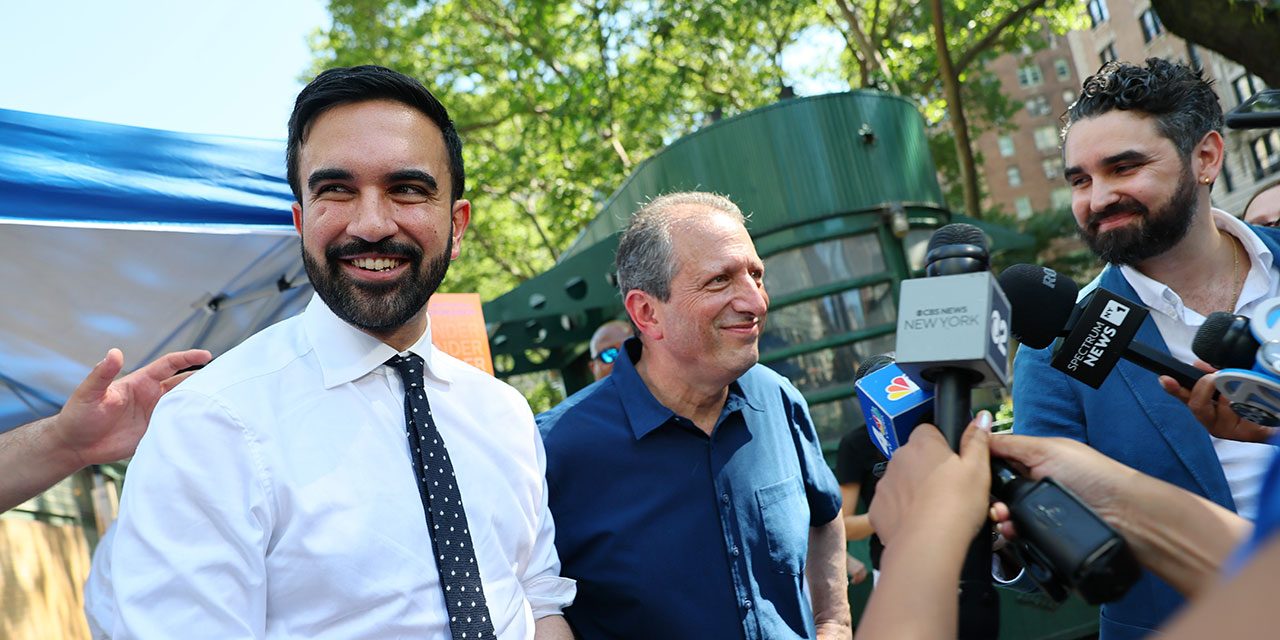
In a stunning political upset, former governor Andrew Cuomo conceded the Democratic mayoral primary to relatively obscure Assemblyman Zohran Mamdani. Despite recent polls predicting a tight race close to the margin of error, Mamdani significantly exceeded expectations, beating Cuomo in the first round of ranked-choice voting by 7 percentage points. Mamdani’s electoral upset of a visibly enervated Cuomo was enabled by social media savvy, a robust volunteer network, and promises that the next mayor can effortlessly solve the city’s affordability crisis.
Another crucial factor was widespread disenchantment with the Democratic establishment. That includes multiple scandals in the Adams administration, Cuomo’s own spotted history, and a vacuum in national Democratic leadership after Kamala Harris’s loss to Donald Trump in the 2024 election.
Finally, a reason to check your email.
Sign up for our free newsletter today.
Some may interpret Mamdani’s victory as part of a socialist-progressive “wave,” reminiscent of an anti-Trump backlash during the 2018 midterms. Mamdani outperformed in majority-black neighborhoods and ran up his margins along the progressive East River corridor.
The Mamdani underdog phenomenon didn’t neatly translate down ballot, however. Most of those races, from citywide offices such as comptroller to outer borough city council seats, proceeded largely as expected. These outcomes hinged on pragmatic factors such as key endorsements, fundraising prowess, and targeted voter demographics, rather than signaling a broader ideological shift among New York City voters.
With progressive stalwart Brad Lander running for mayor, the open race for city comptroller broke decisively for Manhattan Borough President Mark Levine, who defeated progressive City Councilmember Justin Brannan by more than 14 points. Although both leading candidates shared similar positions on key issues, Levine’s stronger coalition-building—including support from influential members of Congress like Rep. Jerry Nadler, superior fundraising, and higher name recognition from his borough-wide office—proved decisive over Brannan’s backing from UAW Region 9A, the progressive Working Families Party, and Senator Bernie Sanders.
Meanwhile, Public Advocate and former gubernatorial candidate Jumaane Williams easily secured reelection, winning over 71 percent of the citywide vote. Williams, frequently identified as a part of the progressive wing of the Democratic Party, faced pointed criticism during debates. His opponent, Assemblywoman Jenifer Rajkumar—a close ally of Mayor Eric Adams—accused him of neglecting his duties, claiming, “Jumaane Williams sleeps until noon and then writes a press release attacking the mayor.” Nevertheless, Williams leveraged his substantial name recognition, fundraising network, and reputation as a controversial “bomb thrower” to defeat his more moderate challengers.
In Brooklyn, city council members Shahana Hanif and Alexa Avilés comfortably retained their seats despite primary challenges shaped by their vocal positions on the Israel-Gaza conflict. Both faced significant opposition from Jewish advocacy groups due to their outspoken criticism of Israel. Hanif’s opponent, Maya Kornberg, criticized her opponent’s focus on international issues over district concerns. As similar criticisms failed to dent enthusiasm for Mamdani, they also did not prevent Hanif’s reelection. Councilmember Avilés’s challenger, Ling Ye, focused on public safety and quality of life issues. She attacked Avilés for being too focused “on building a personal brand.”
Unlike former Congressman Jamaal Bowman, who lost his primary last year partly due to heavy opposition funding from pro-Israel groups, Hanif and Avilés leveraged understanding of their districts’ changed demographics and sentiments on the conflict. Both council members effectively overcame well-funded opposition from super PACs representing Jewish advocacy groups and corporate interests like Uber, countering them with endorsements from influential local figures like Congresswoman Alexandria Ocasio-Cortez.
Ultimately, Mamdani’s rise—paired with these varied down-ballot outcomes—reveals a city in flux. The Left has found a burst of new energy, driven by a campaign extraordinarily well suited to reaching younger voters through social media and a ground game that purportedly knocked on a million doors.
As New York looks toward the general election, the pivotal question will be whether Mamdani can harness his insurgent appeal into broad-based turnout against a still-unpopular Mayor Adams or if the city’s pragmatists will band together to oppose a dramatic leftward shift.
Photo by Michael M. Santiago/Getty Images
City Journal is a publication of the Manhattan Institute for Policy Research (MI), a leading free-market think tank. Are you interested in supporting the magazine? As a 501(c)(3) nonprofit, donations in support of MI and City Journal are fully tax-deductible as provided by law (EIN #13-2912529).
Source link

















